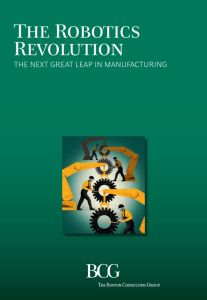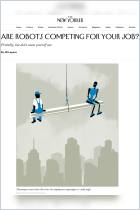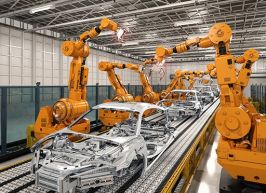Join getAbstract to access the summary!

Join getAbstract to access the summary!
Harold L. Sirkin, Michael Zinser and Justin Ryan Rose
The Robotics Revolution
The Next Great Leap in Manufacturing
Boston Consulting Group, 2015
What's inside?
Robots give companies a competitive edge by reducing labor costs and increasing productivity.
Recommendation
If you thought the robotics revolution in manufacturing was long over, think again. Intelligent robots that can process visual information, make judgements about quality and communicate with manufacturing systems are becoming not only commonplace, but affordable. Boston Consulting Group partners Harold L. Sirkin, Michael Zinser and Justin Ryan Rose present their analysis of automation across 21 industries and 25 countries. They establish which tasks in which industries are automatable, and determine the likelihood that various industries will adopt robotic solutions. getAbstract recommends this cogent analysis to small-business owners, CEOs and operations managers.
Summary
About the Authors
Harold L. Sirkin and Michael Zinser are senior partners at The Boston Consulting Group and Justin Ryan Rose is a partner.



















Comment on this summary